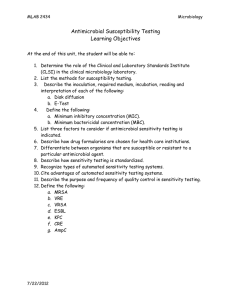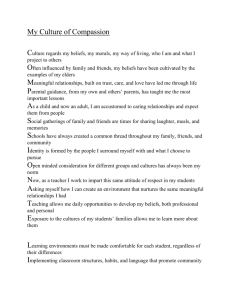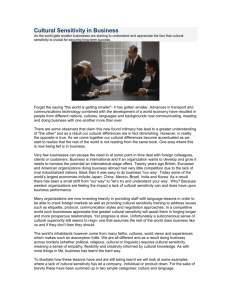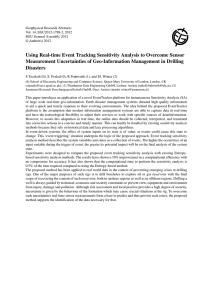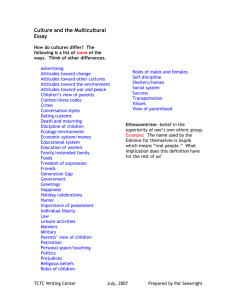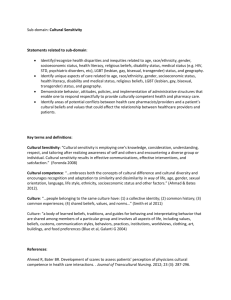What is cultural sensitivity and cultural awareness?
advertisement
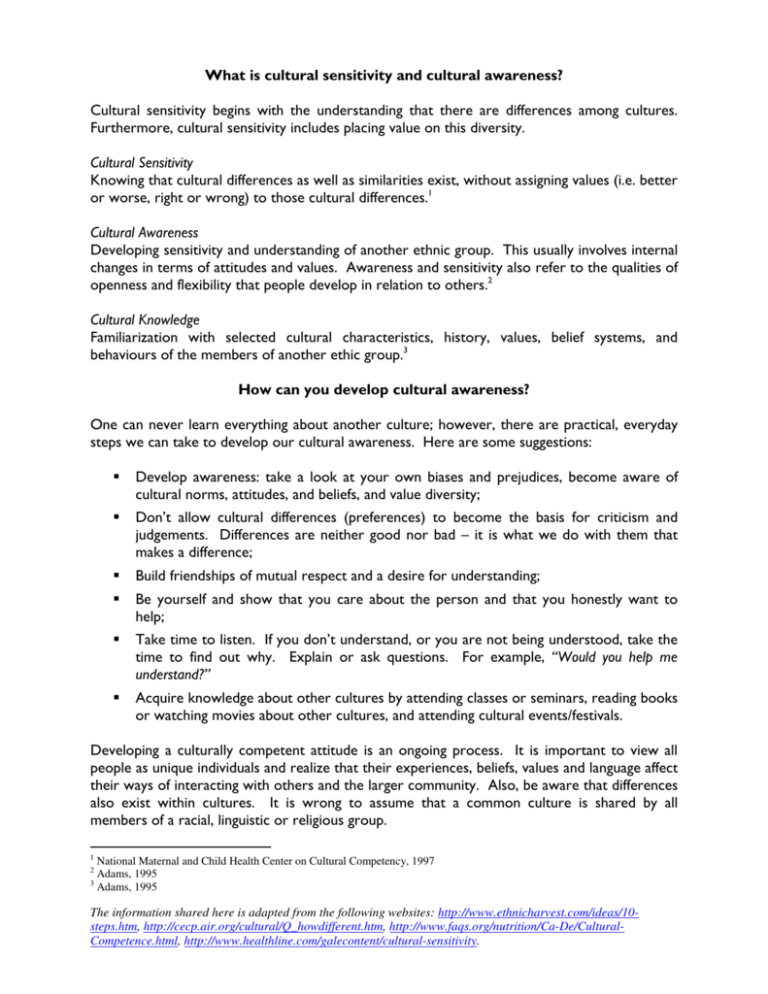
What is cultural sensitivity and cultural awareness? Cultural sensitivity begins with the understanding that there are differences among cultures. Furthermore, cultural sensitivity includes placing value on this diversity. Cultural Sensitivity Knowing that cultural differences as well as similarities exist, without assigning values (i.e. better or worse, right or wrong) to those cultural differences.1 Cultural Awareness Developing sensitivity and understanding of another ethnic group. This usually involves internal changes in terms of attitudes and values. Awareness and sensitivity also refer to the qualities of openness and flexibility that people develop in relation to others.2 Cultural Knowledge Familiarization with selected cultural characteristics, history, values, belief systems, and behaviours of the members of another ethic group.3 How can you develop cultural awareness? One can never learn everything about another culture; however, there are practical, everyday steps we can take to develop our cultural awareness. Here are some suggestions: Develop awareness: take a look at your own biases and prejudices, become aware of cultural norms, attitudes, and beliefs, and value diversity; Don’t allow cultural differences (preferences) to become the basis for criticism and judgements. Differences are neither good nor bad – it is what we do with them that makes a difference; Build friendships of mutual respect and a desire for understanding; Be yourself and show that you care about the person and that you honestly want to help; Take time to listen. If you don’t understand, or you are not being understood, take the time to find out why. Explain or ask questions. For example, “Would you help me understand?” Acquire knowledge about other cultures by attending classes or seminars, reading books or watching movies about other cultures, and attending cultural events/festivals. Developing a culturally competent attitude is an ongoing process. It is important to view all people as unique individuals and realize that their experiences, beliefs, values and language affect their ways of interacting with others and the larger community. Also, be aware that differences also exist within cultures. It is wrong to assume that a common culture is shared by all members of a racial, linguistic or religious group. 1 National Maternal and Child Health Center on Cultural Competency, 1997 Adams, 1995 3 Adams, 1995 2 The information shared here is adapted from the following websites: http://www.ethnicharvest.com/ideas/10steps.htm, http://cecp.air.org/cultural/Q_howdifferent.htm, http://www.faqs.org/nutrition/Ca-De/CulturalCompetence.html, http://www.healthline.com/galecontent/cultural-sensitivity.




